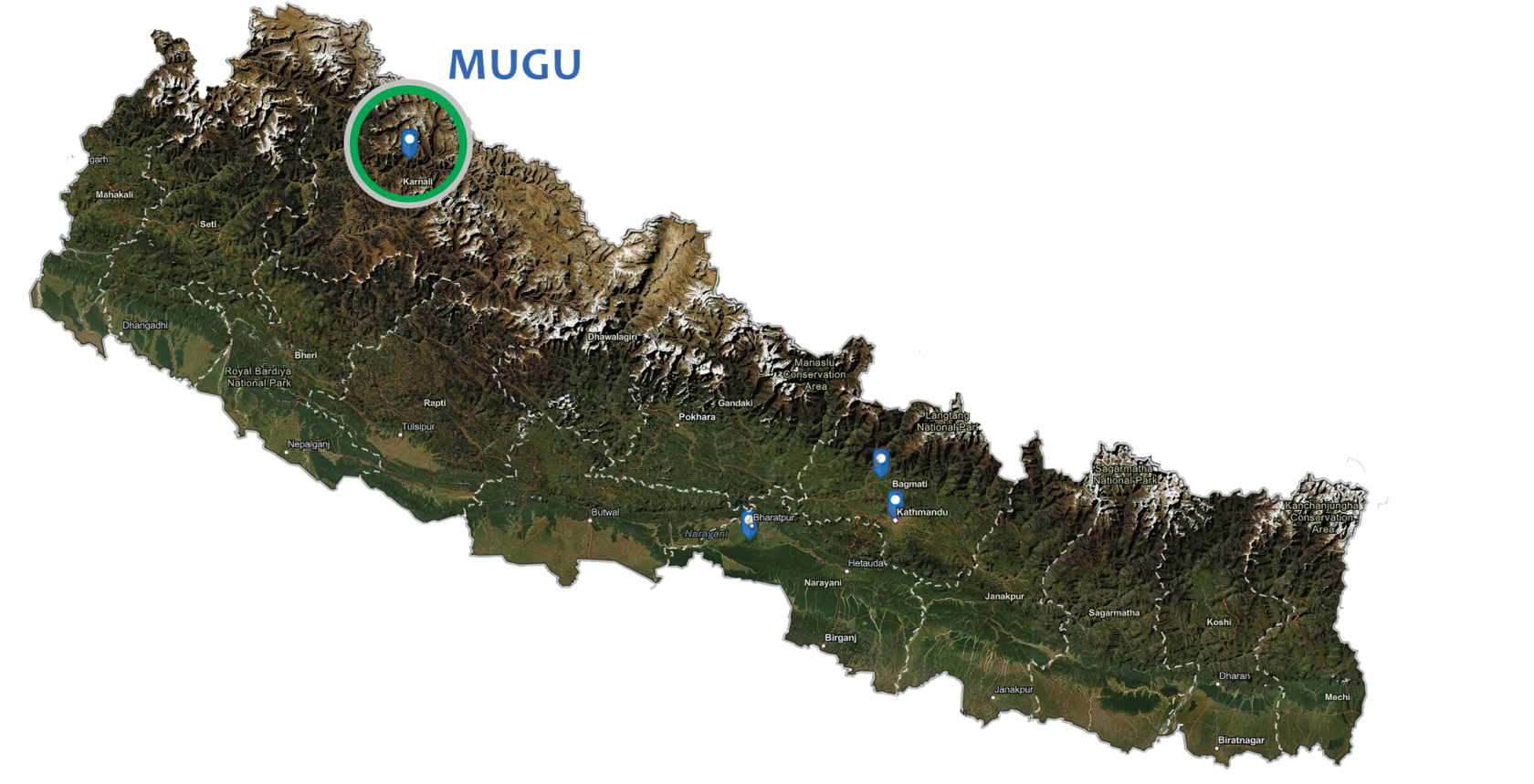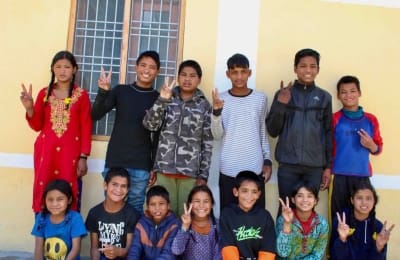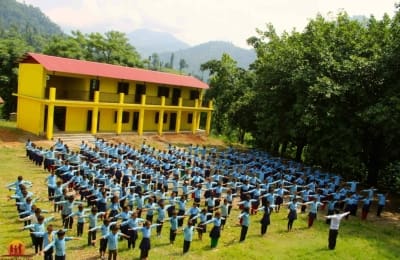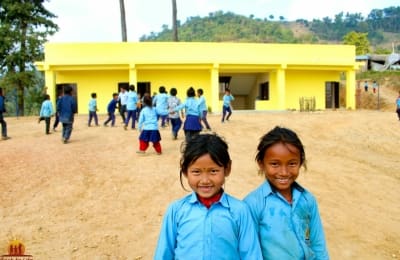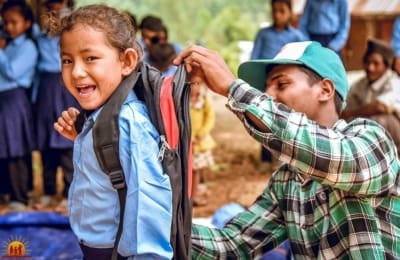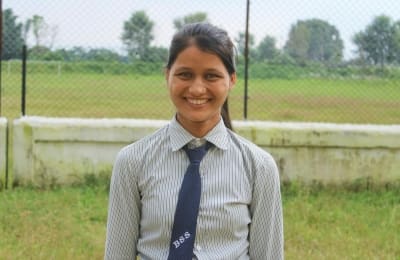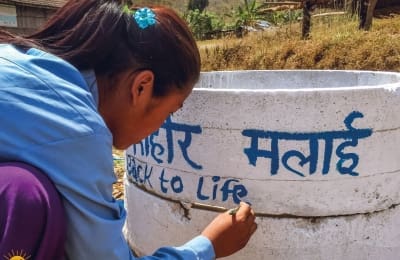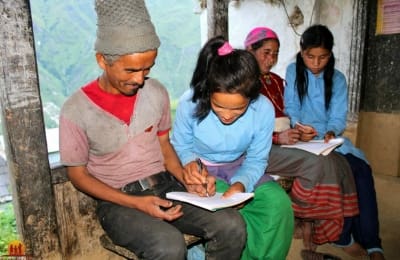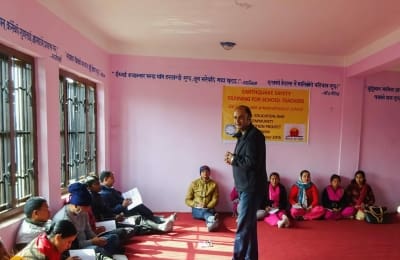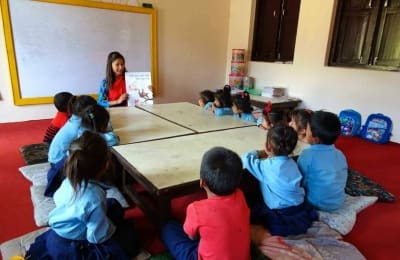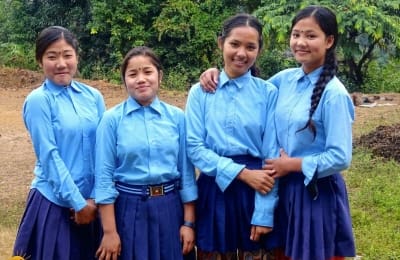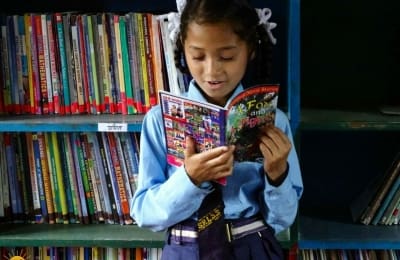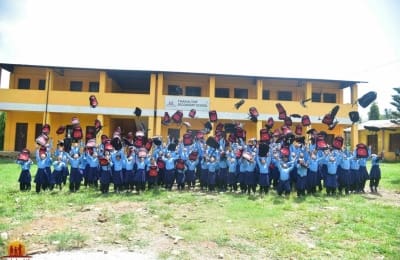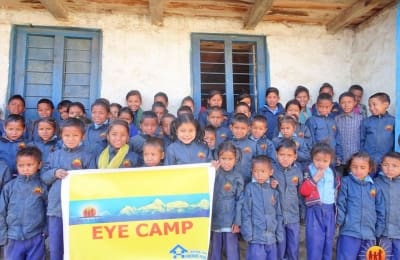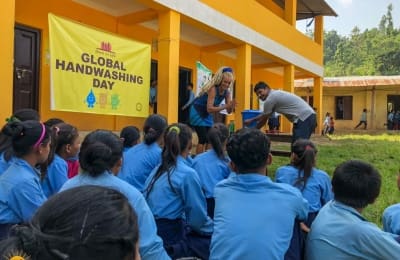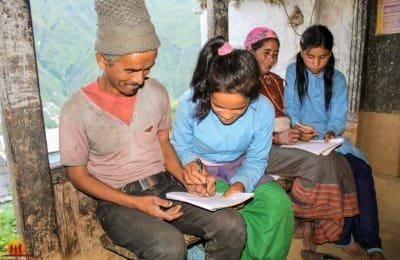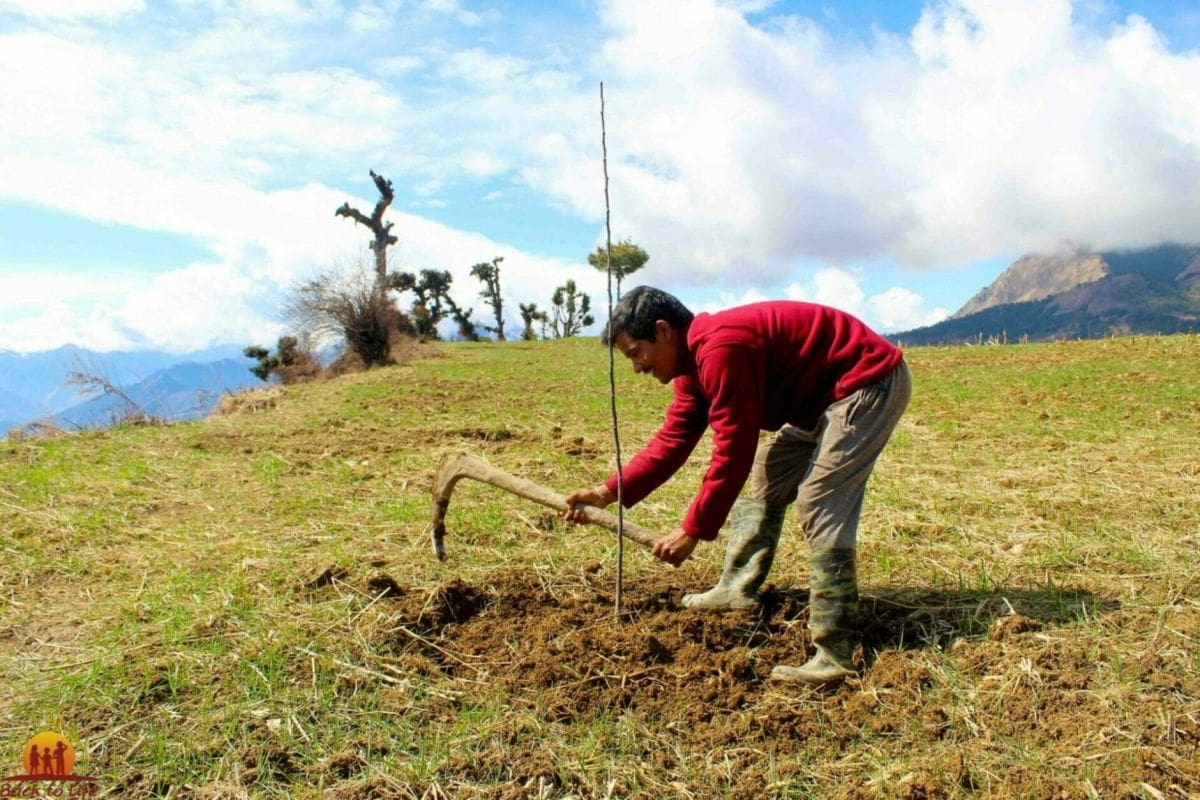
The people in rural Mugu are predominantly smallholders who practice extensive agriculture (low capital and labor input in relation to the area). The soils in Mugu are not very fertile, and the farmers’ harvests are not particularly productive. The people there are both producers and consumers of the crops they grow, but the harvests are usually not enough to adequately feed the families.
FRUIT TREES AS FUTURE SOURCE OF INCOME I 2019 we asked the farmers in our project villages Jiuka, Hyanglu and Nakharji about their situation and how they can be helped to stand safely on their own two feet. They mentioned that they would like to plant fruit trees because they could get a good income from the fruit they sell in the markets. We then contacted the agricultural authority to find out which types of fruit would be best for the mountain area. There we were told that apple trees could grow well near Jiuka. In the lower-lying villages of Khatyad and Nakharji, on the other hand, lemons would rather produce good yields.
WITH AN EXPERT AT YOUR SIDE | For the implementation of the project, we commissioned an agricultural expert who has been supporting the small farmers in Mugu with his knowledge since spring in planting and caring for the trees. A total of 97 smallholders have already benefited from our pilot project. 40 families in Jiuka planted 1680 apple trees, the remaining 57 from Hyanglu and Nakharji planted 650 and 550 lemon trees, respectively.
TWO WINNERS – THE ECOSYSTEM AND THE HUMAN
We are happy to support the idea of small farmers to plant fruit trees in the Mugus regions. Because the trees are not only a good source of income, but they also support the ecosystem, for example by helping to stabilize the soil in order to reduce the risk of landslides. By growing fruit trees, we are making a contribution to climate protection, as the trees will soon help to bind existing carbon dioxide. In this way, our measures mesh perfectly and help people and nature. We would like to expand this project to other Mugu villages.
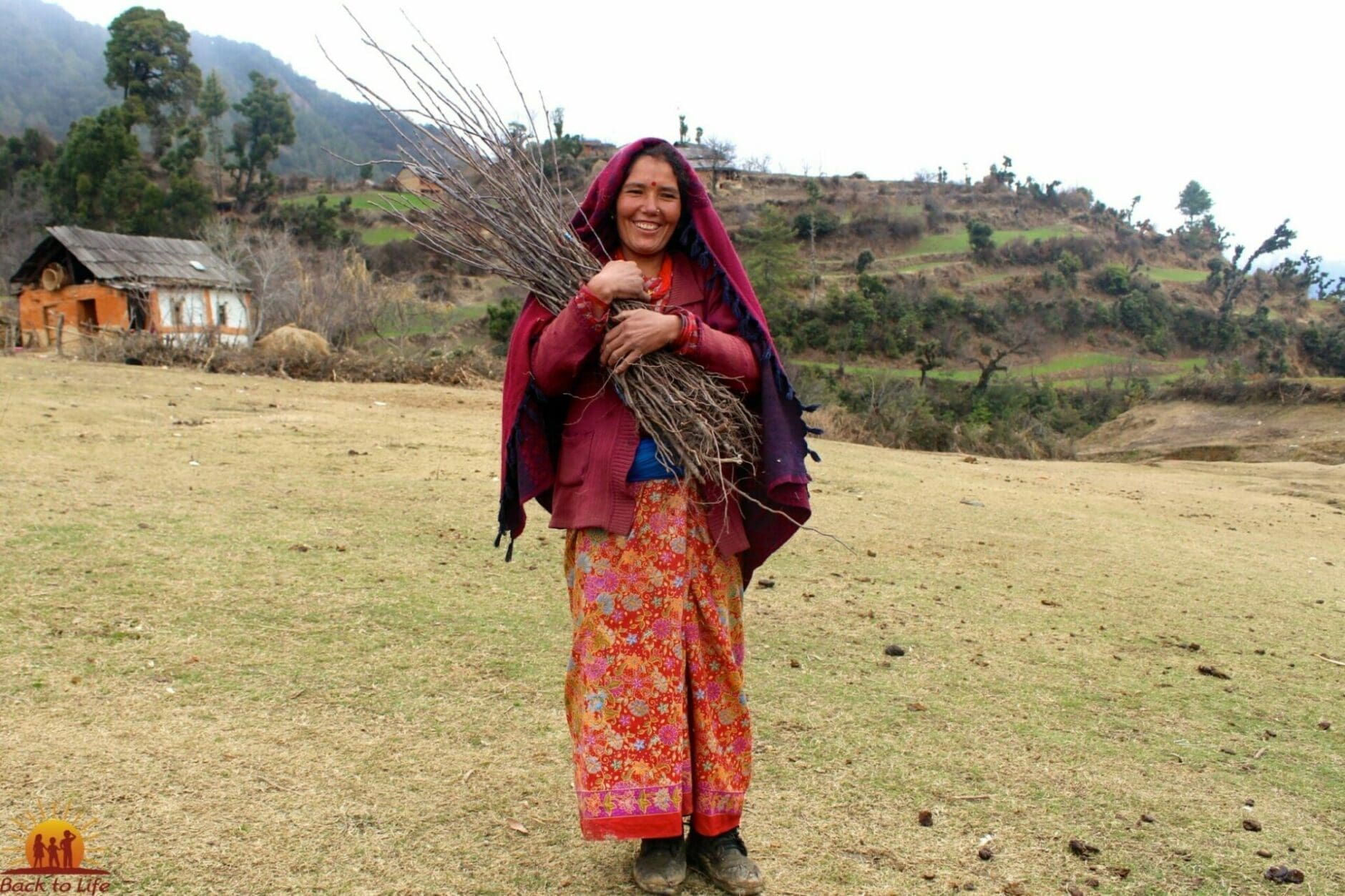

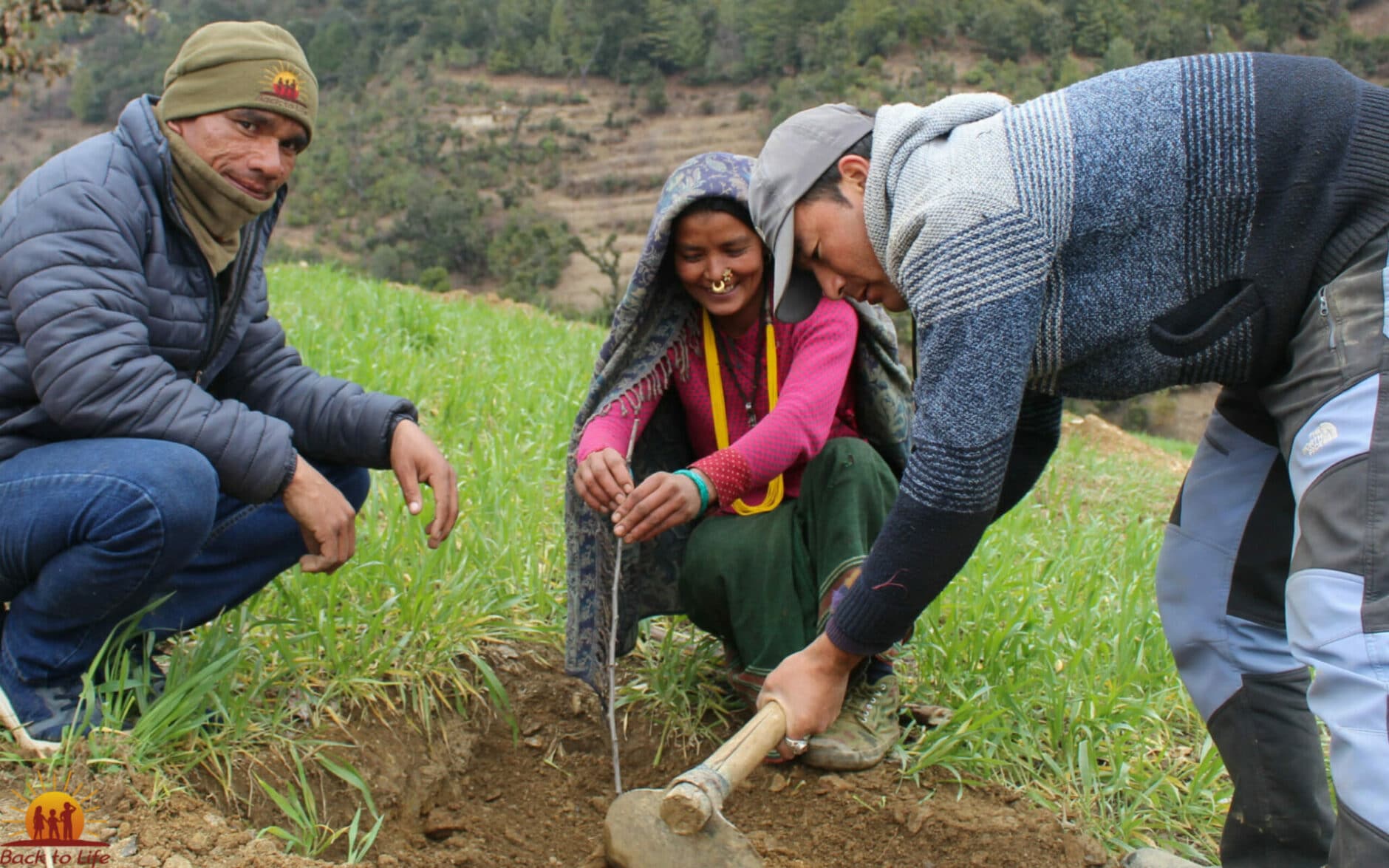

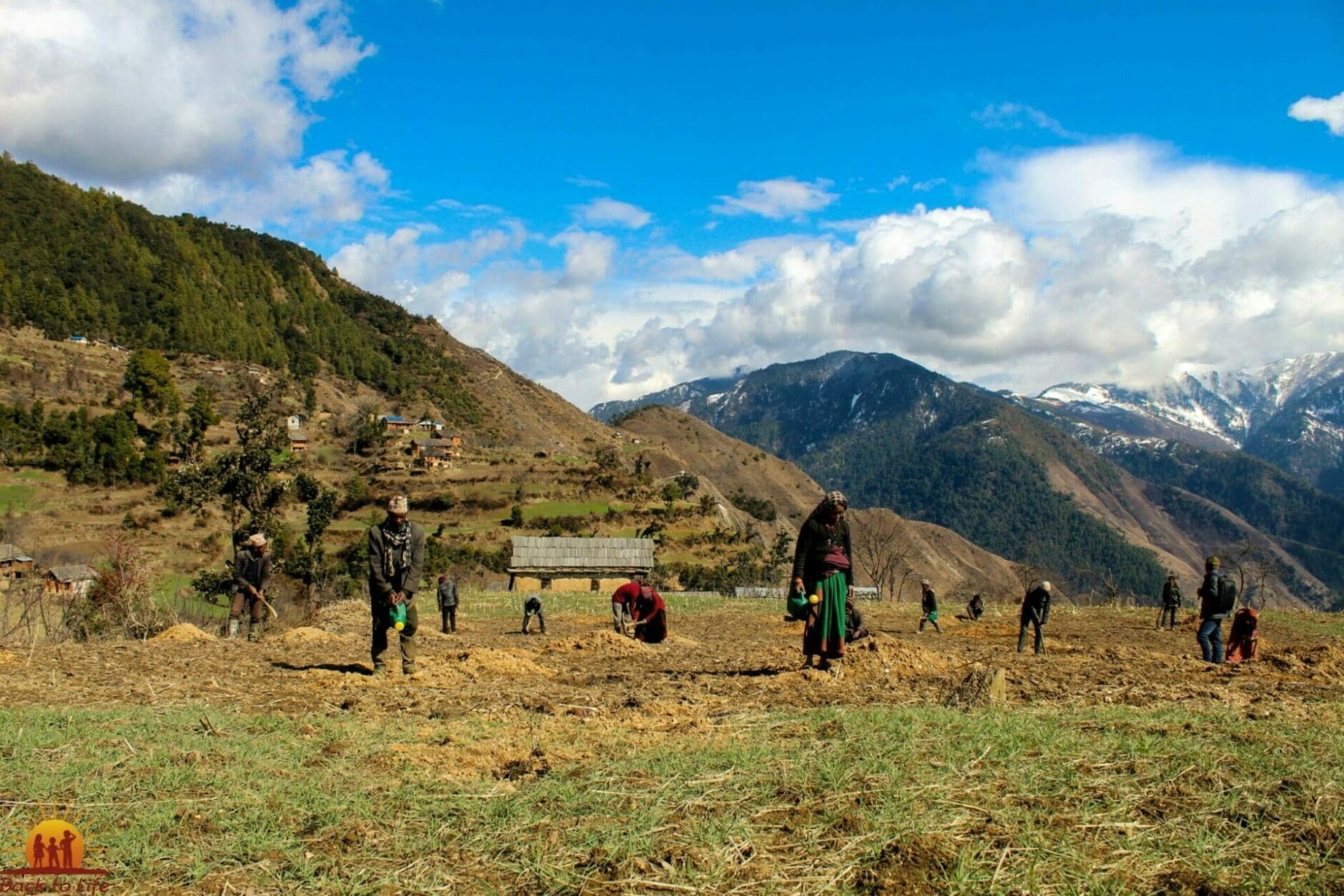

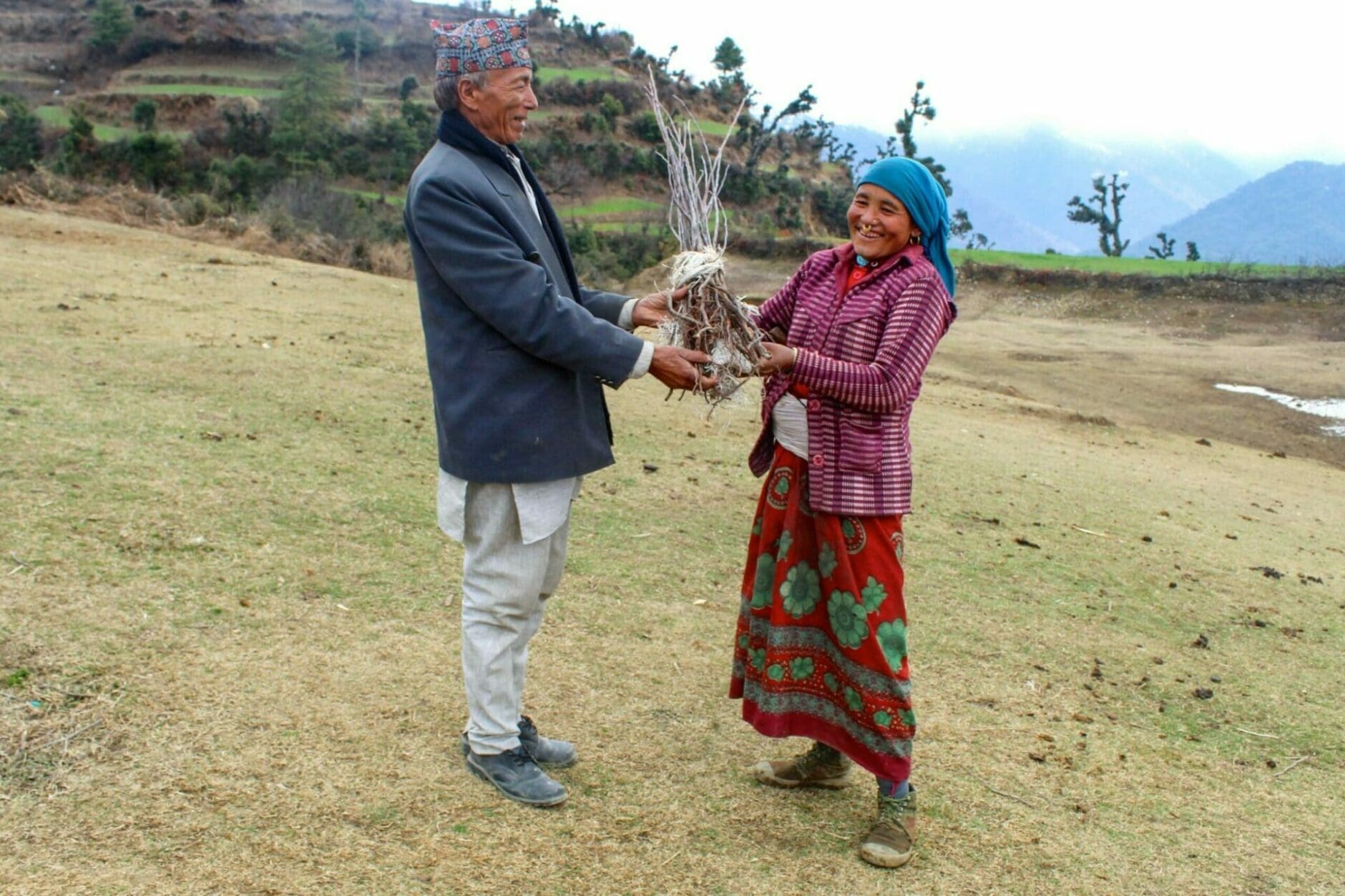

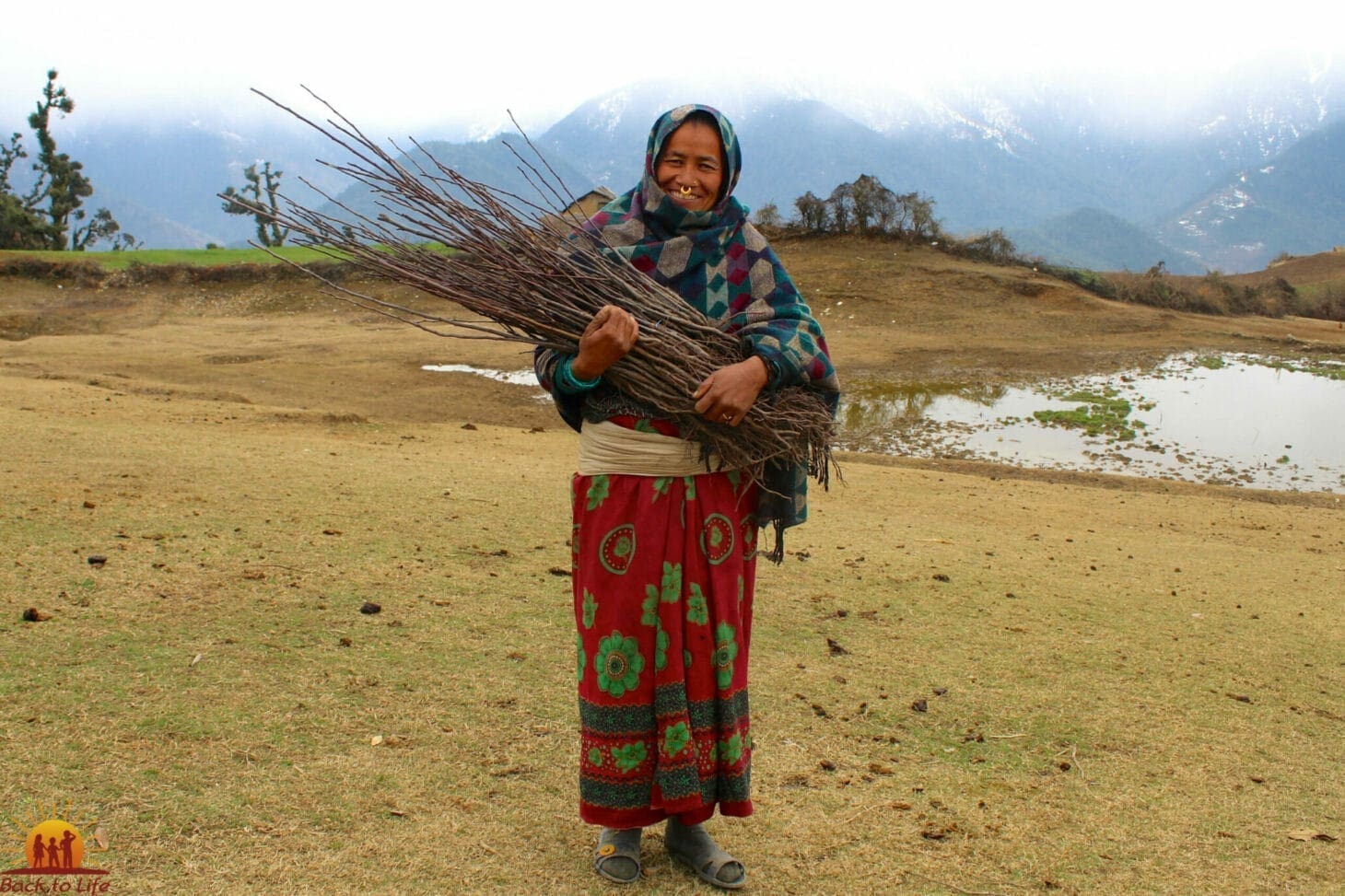

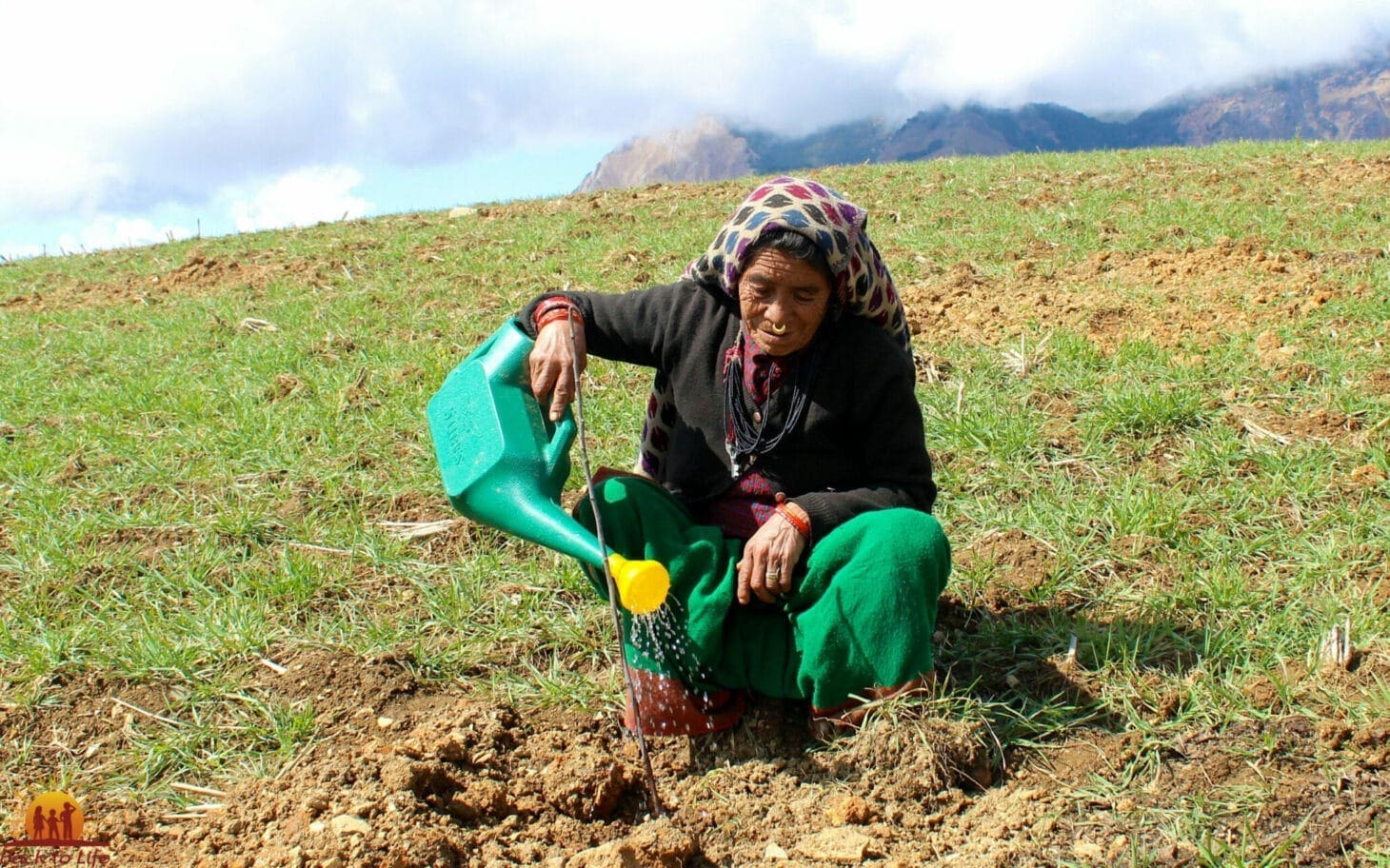

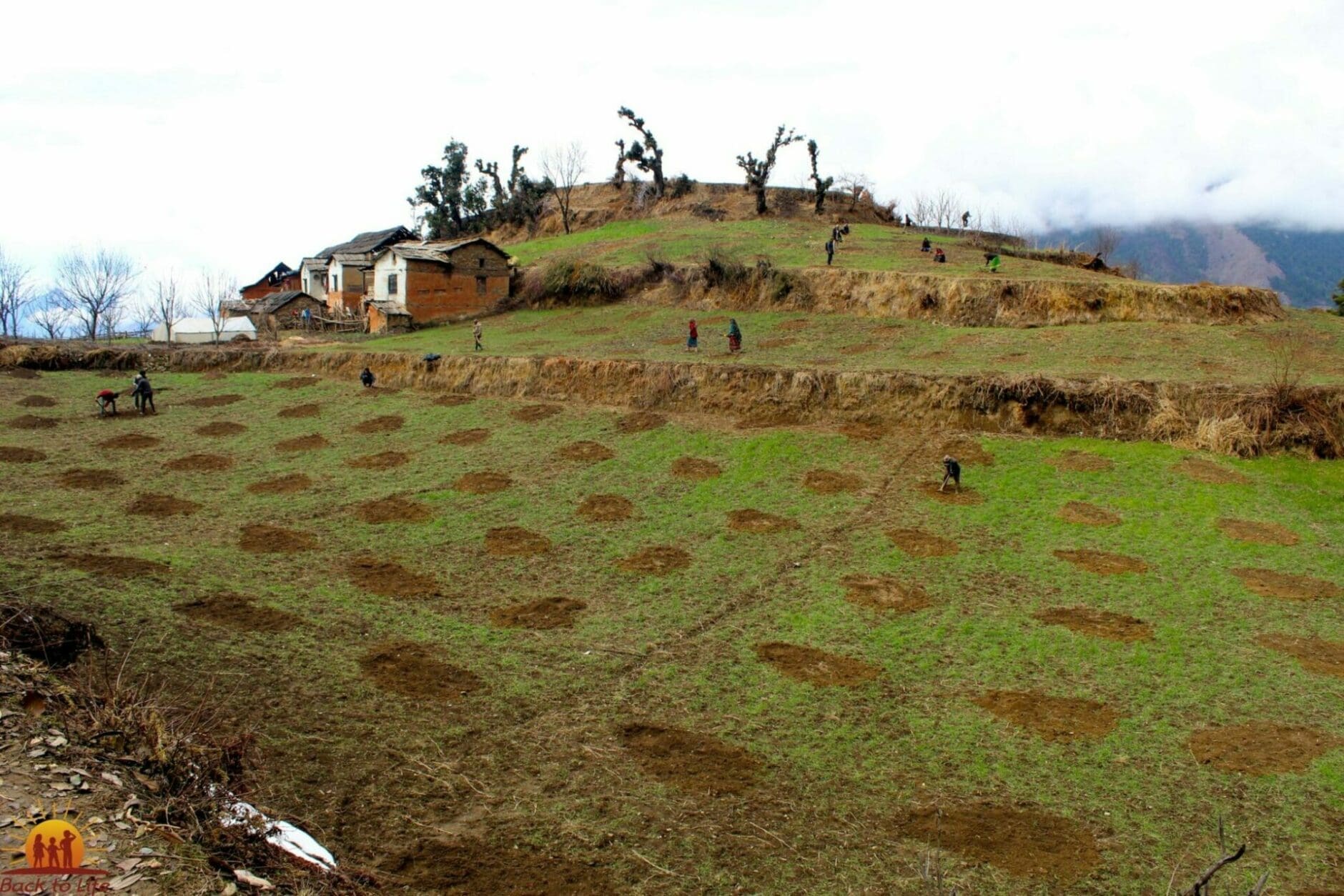

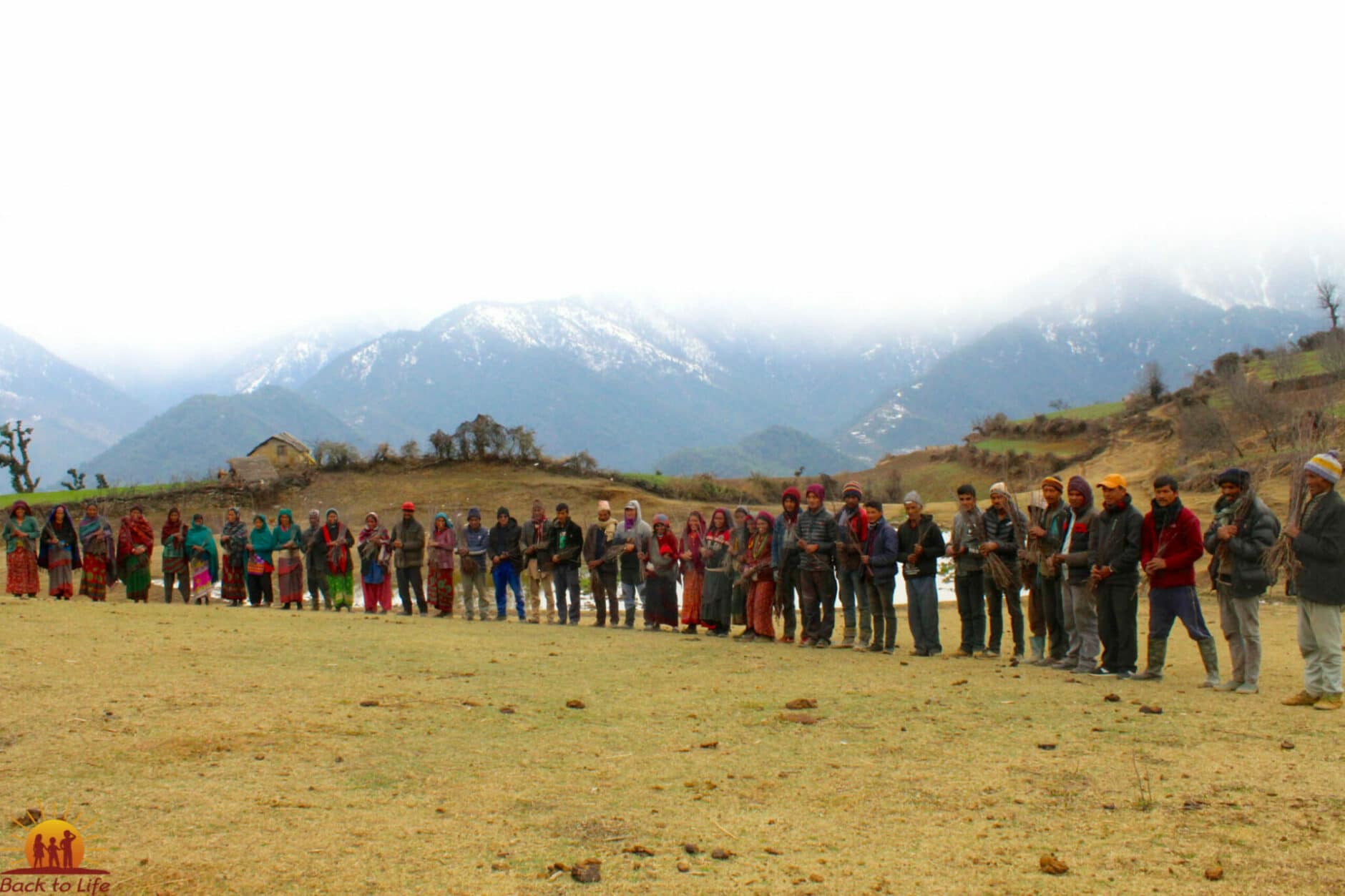

The farmers are very happy about this potential new source of income, two of them each gave our team a short interview:
Raj Bahadur Budha lives with his family of 8 in the village of Hyanglu. He has three children, 1 daughter and 2 sons. Two of them go to school. Agriculture and animal husbandry are the main source of income for the family. Raj planted 25 lemon plants in his field, financed and technically supported by Back to Life.
1. How did you plant the trees and do you see any progress?
“First we dug pits 1 meter deep. Then we put some leaves of the asuro plant and then 3 layers of soil and compost dung in it. Finally, we planted the lemon seedlings. Now these plants are growing well, they are already 15-25 cm tall. I take good care of her. “
2. How often do you communicate with our agricultural expert?
“He visits the farm regularly and closely monitors the progress. I am always in contact with him and ask for help if I have problems with the plants. “
3. What other crops did you grow on your land?
“I grow millet and potatoes. I grew 2 pomegranate trees and 4 orange trees. We eat the fruits at home. “
4. When can the first lemons be harvested?
“As the agricultural expert on the project taught me, a healthy lemon plant gives fruit from the 3rd year on. I am very happy about the support from Back to Life and I believe in a bright future for our cultivation. It’s good practice for people in remote areas, thank you. “
Sipu Rokaya lives with his family of 10 in Jiuka Village. He has 6 daughters and 2 sons. The oldest daughter is already married. His 7 children study at school. Agriculture is the main source of income for the family. He planted 110 apple plants in his field.
1. When will you have the opportunity to harvest the first apples?
“I have some experience in apple cultivation and already had some plants on my land. I hope that the fruits can be harvested from the third year on. “
2. What difficulties do you face in growing these plants?
“I used to have problems growing. But the practical support from the experts from Back to Life made everything easier this time. I also learned a lot about crop protection and natural fertilization. “
3. Is there a market in your area where you can sell the apples?
“In the past it was difficult to sell the fruit in the markets. These days we can walk to the street after an hour and a half. That makes everything easier. “
